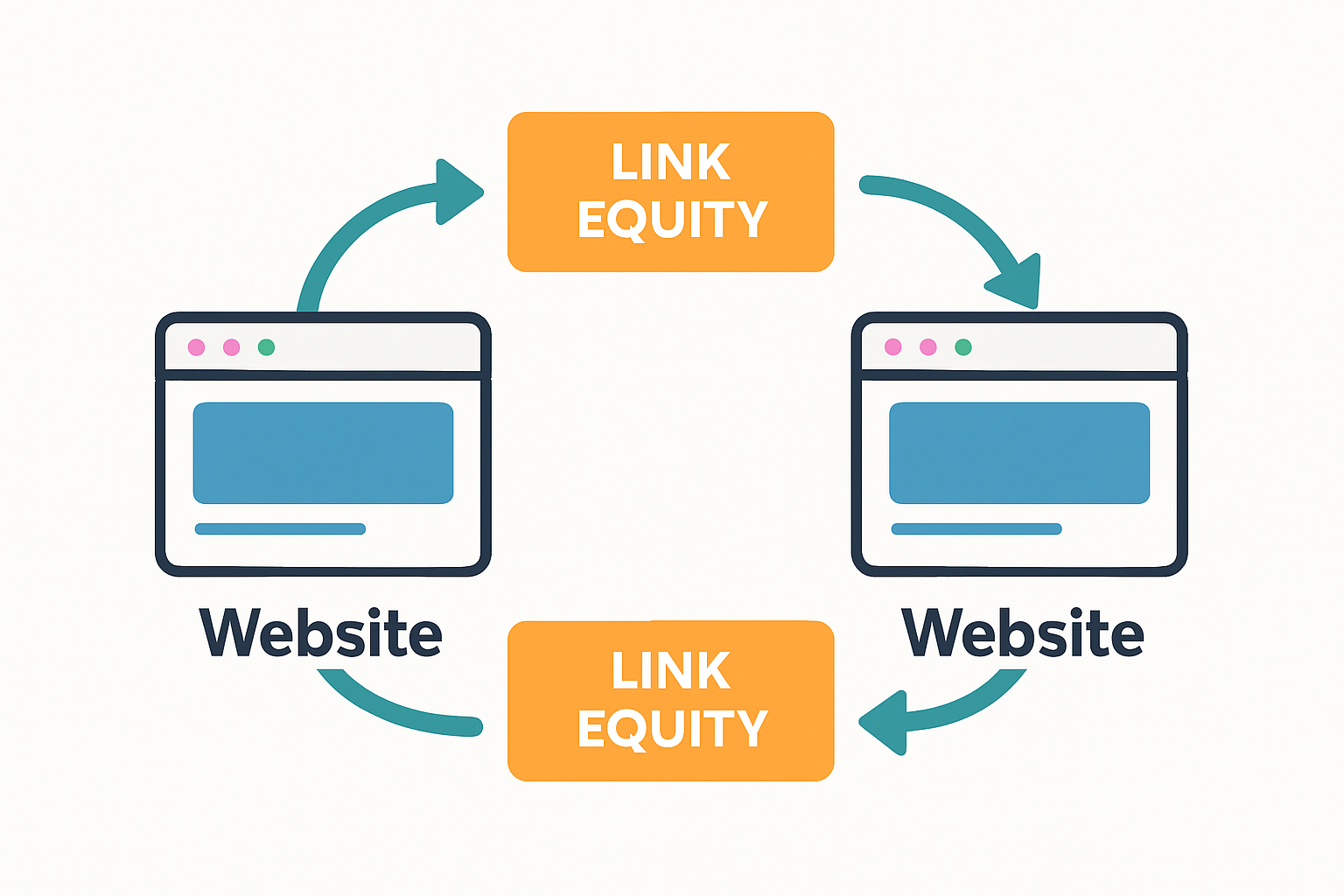
Powerful PPC Optimization Tactics to Maximize Your Spend
Unlock powerful PPC optimization strategies that elevate your campaigns beyond basics. Learn expert...

Reciprocal linking SEO is a pretty common link building strategy where two websites agree to swap links. While this tactic can offer some nice SEO perks, it’s not without its fair share of risks especially depending on how you go about it.
Reciprocal linking SEO kicks in when two websites decide to link back to each other, creating a sort of mutual backlink handshake. This tactic often plays a supporting role in broader link building strategies and can give sites a nice little boost in earning backlinks and drawing in visitors.
In SEO, links come in all shapes and sizes. One-way links happen when site A points to site B without expecting anything back—these tend to pack a bigger punch with search engines. Then you have reciprocal or two-way links where both sites nod to each other. The real worth of these links depends on a few things like domain authority and content relevance. It also depends on where the link appears on the page. The good stuff—high-quality reciprocal links—usually comes from trustworthy related sites.
When it comes to boosting your SEO game, reciprocal linking can be quite the hidden gem. Think of it as a friendly nod between sites, gently nudging search engines to notice your corners of the web. It’s not just about swapping links for the sake of it—there’s a little charm in how these give-and-take relationships can help improve your site's authority and relevance. Of course, like most good things, it works best when done thoughtfully rather than spamming links everywhere. But when you get it right, reciprocal linking can open doors to new audiences, increase traffic, and even foster genuine partnerships that go beyond just SEO. So, while it’s no magic bullet, in my experience, it’s definitely a tactic worth weaving into your overall strategy.
Reciprocal linking, when handled with care, can really pay off in SEO. It’s a handy way to strengthen your link profile and foster meaningful connections with like-minded sites. It also speeds up those all-important backlink wins.
Take a local bakery teaming up with a nearby coffee shop as a perfect example. They might casually swap links on their websites, which gives both a nice little boost in local search results kind of like a friendly nudge in the right direction. Blogs covering related topics often share links as well, which not only bumps up credibility but also drives some welcome referral traffic.

Diagram illustrating the reciprocal linking process between two websites and how it affects link equity flow
Reciprocal linking SEO can bring some perks to the table but it also comes with its fair share of risks—especially if you go overboard or team up with sketchy sites. Search engines are constantly tweaking their algorithms to sniff out any sneaky linking schemes, which can lead to penalties or a serious drop in link value.
Websites that dive headfirst into massive reciprocal link trades with completely unrelated sites tend to get slapped on the wrist by Google's algorithms for trying to pull a fast one on the rankings. To avoid landing in hot water, it’s really key to put relevance and quality ahead of just piling up links.
| Benefit/Drawback | Description | Impact on SEO |
|---|---|---|
| Benefit: Natural Link Profile | Helps cultivate a diverse and organic-looking network of backlinks that search engines tend to trust. | Positive – boosts domain authority and builds trust naturally |
| Benefit: Relationship Building | Encourages genuine partnerships and teamwork with related websites, opening doors to new possibilities. | Positive – often leads to more opportunities |
| Benefit: Referral Traffic | Can bring a tidy boost in visitors through clicks coming straight from your partner sites. | Positive – ramps up traffic and can improve conversion rates |
| Drawback: Risk of Penalties | Search engines might frown upon reciprocal linking if it feels a bit too much like manipulation. | Negative – could cause ranking drops or even removal from the index |
| Drawback: Quality Concerns | Getting links from irrelevant or low-quality sites can drag down your site’s reputation and SEO performance. | Negative – dents domain authority and rankings |
| Drawback: Devaluation Potential | Search engines often see reciprocal links as less valuable compared to one-way links, which can water down their impact. | Negative – reduces the link equity benefits |
Getting your head around reciprocal linking is not just about swapping links—it’s more like building a friendly neighborhood where everyone benefits. In this section, we will dive into smart tactics that help you create meaningful SEO partnerships without looking like you are trying too hard. Whether you are new to the game or have been around the block a few times, these strategies will give your link-building efforts a little extra sparkle.
To really get the most out of reciprocal linking while keeping its quirks in check, it is best to play it smart with quality and relevance and a good dose of moderation.
Aim for websites that truly match your niche and have strong domain authority. This way, your links bring real value to the table.
Keep reciprocal link exchanges balanced. A little give-and-take is healthy, but too much can backfire.
Make your linking feel natural by placing links where they fit best instead of adding them randomly.
Regularly check your reciprocal links using handy tools like Semrush or Moz. This helps you find and remove any low-quality or broken links before they cause problems.
Enhance your link-building strategy by including one-way backlinks from trustworthy sources instead of relying mostly on reciprocals.
Instead of swapping links left and right with a bunch of sites, it is usually smarter to buddy up with a handful of high-quality sites that really align with your niche. These strategies stick closely to Google's Webmaster Guidelines, which helps keep your links on the up and up and lowers the risk of any nasty penalties.
Whether reciprocal linking fits into your SEO strategy often hinges on your website’s style and the industry you’re in. It also depends on where you want to be down the road.
Thinking through these factors with a bit of care can really help you figure out if reciprocal linking is a good match for your SEO goals.

Unlock powerful PPC optimization strategies that elevate your campaigns beyond basics. Learn expert...

Master web development SEO with this practical guide using Semrush. Learn to audit, optimize, and tr...

Unlock the power of video content with top video search engines tailored for keyword research. Disco...

Discover the best internet archive alternatives tailored for different budgets and data preservation...